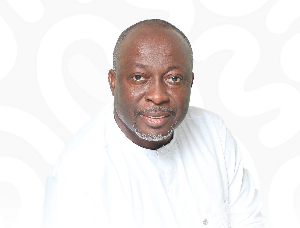Accra, April 21, GNA - The West African Centre for the Advancement of African Peer Review Mechanism (WACAA) was on Monday formed as a sub-regional body to enhance policies, standards and norms to promote regional co-operation and integration.
The Centre, the brain child of Ghana, Togo and Benin, seeks to rely on home grown solutions and factors in contextual issues in the different countries.
"This is in sharp contrast to the APRM Secretariat and ECOWAS which operate on formal procedures and mandates," Dr. Francis Appiah, Executive Secretary National African Peer Review Mechanism - Governing Council (NAPRM-GC), stated at roundtable conference in Accra. The conference, which was attended by participants from the three countries and the donor community, discussed the building of a shared regional knowledge-based organisation to promote democracy and good governance in West Africa within the framework of the APRM. Dr Appiah said the West African Centre would serve as a platform for sharing regional knowledge, promote popular ownership and participation, and eliciting local and grassroots knowledge on APRM. He said WACAA will also build a bridge between state and civil society, foster dialogue at national, sub-regional and international levels, while working to support other countries going through the APRM process.
Dr Appiah noted that WACAA took into account different levels of development in different countries, in contrast to the APRM and ECOWAS that promote "One-size-fits-all" standards, policies and programmes. Speaking on "Promoting Good Governance in West Africa," Dr Appiah said eight West African countries had subscribed to the APRM since its inception in 2003.
The APRM concept operates under the principles of participating states voluntarily submitting themselves to civil society assessment and evaluation in four thematic areas.
The areas are: democracy and good political governance; economic governance and management; cooperate governance; and socio-economic development.
The Reverend Professor S. K. Adjepong, Chairman of NAPRM-GC, said the APRM process had provided institutional space for civil society dialogue with the public, while the governing councils had created platforms for non-partisan discourse.
Using the Ghanaian achievement to encourage other African countries, Prof Adjepong said the participation of the people in the APRM was being deepened with the formation of district APRM Oversight Committees.
He said these committees are voluntary associations of civil society and public sector actors who undertake education and sensitization activities, as well as monitor the implementation of the programme of action at the local level.
Prof Adjepong lauded the formation of WACAA as it would help harmonise sub-regional efforts in promoting the tenets of democracy, good governance and accountable leadership.
Ms B. Do Rego, Chairlady of APRM Commission of Benin,commended Ghana for her leadership role in the sub-region, which served as stimulus for other APRM participating countries to emulate. "We will continue to compare notes with our Ghanaian brothers and sisters for the benefit of our two countries," she stated. The Accra WACAA Conference tasked Ghana and Benin to set up a Steering Committee to follow-up issues raised during the meeting, mobilize civil society participation in the APRM process and integrate APRM decentralized structures into WACAA operations. The two countries are also to set up a legal entity, engage other countries to participate in the initiative, and prepare towards a WACAA conference in September for the formal establishment of WACAA.
Business News of Tuesday, 21 April 2009
Source: GNA
West African Centre for the Advancement of APRM formed
Entertainment











